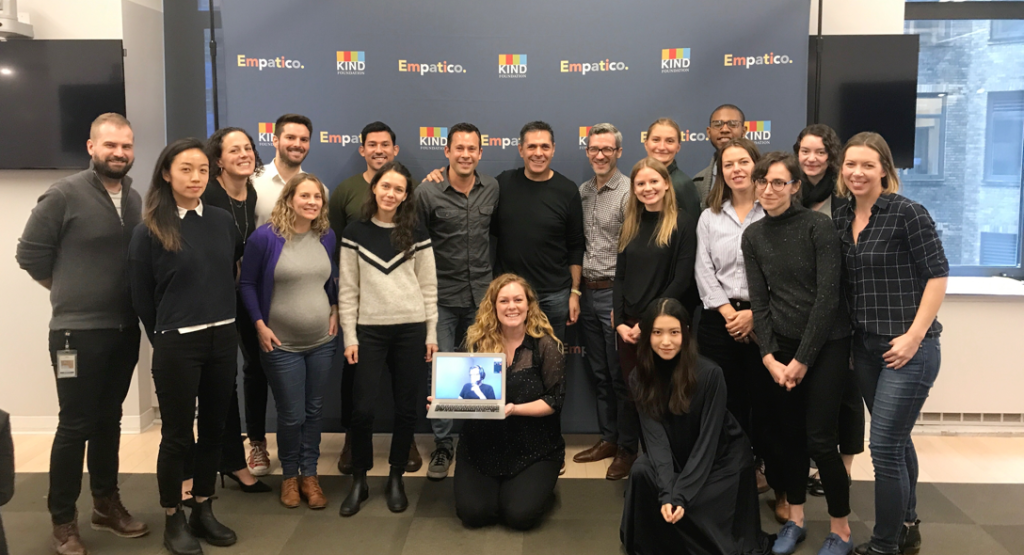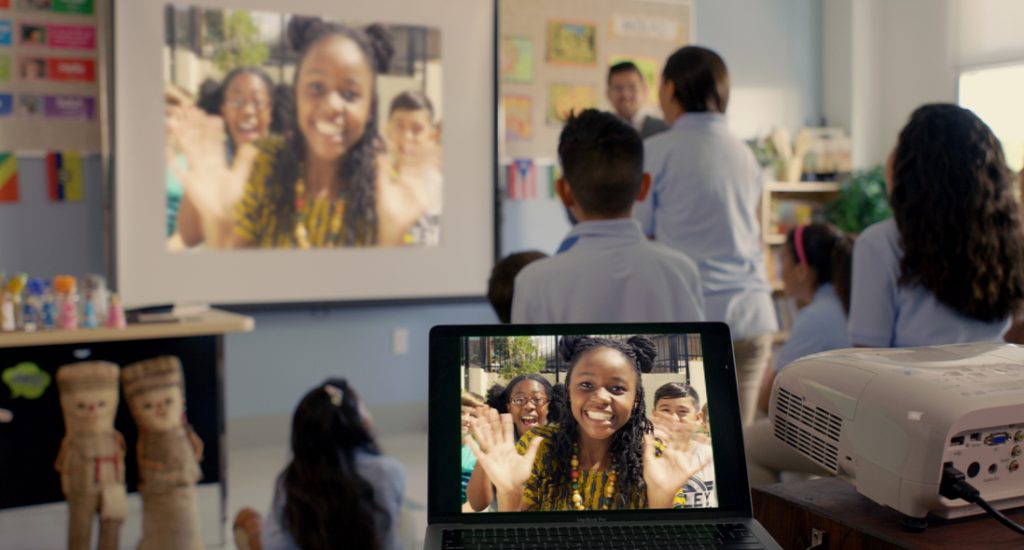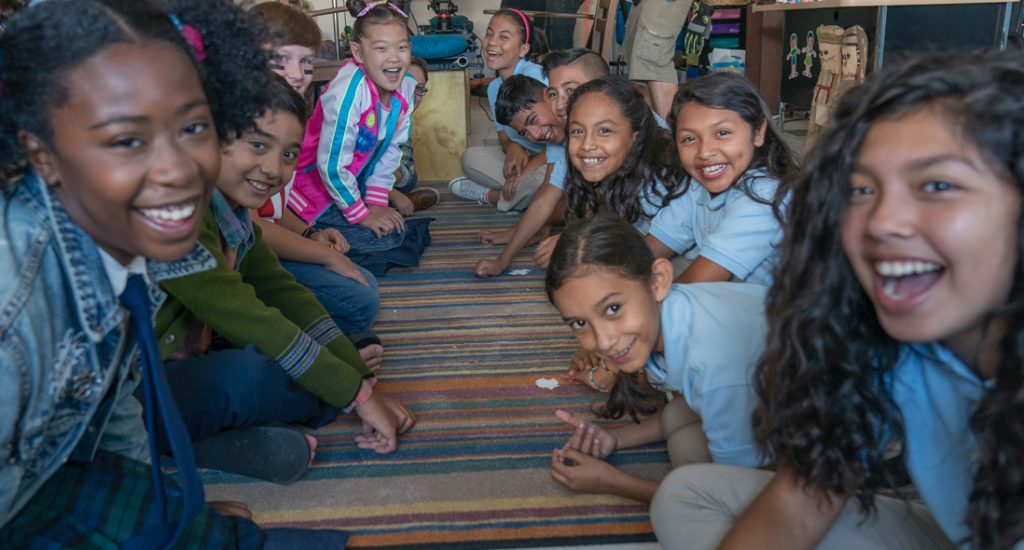What does dog food have to do with Empatico? In the tech world, “dogfooding” refers to testing your own product as if you were a user to work out glitches and walk through the user’s experience. At Empatico, one of our amazing team members, Kelsey Todd, “dogfoods” our video tool by volunteering at an afterschool program where she leads Empatico exchanges with elementary school students. More broadly, the Empatico team takes a holistic approach to dogfooding by practicing our Empatico Skills and celebrating Empatico moments.
The Empatico Skills–cooperation, critical thinking, perspective taking, and respectful communication–are all foundational competencies that help build strong relationships, especially among people from different backgrounds and cultures. As a team with diverse personal and professional experiences–from teaching to engineering, to design, to consulting–we can attest to the lifelong and workplace value of practicing the Empatico Skills.
Cooperation
At Empatico, we practice cooperation in almost every aspect of our work. With all the moving parts of our platform and its content, we work together to drive toward our primary goal of connecting students around the world. For example, our engineering, design, and content and evaluation teams come together quarterly to discuss new challenges and opportunities, brainstorm solutions, and reach agreement on the path forward.
The process for Empatico’s quarterly product retreats mirrors the research-based, three-tier structure of our activities: prepare, interact, reflect. Every team member prepares by completing a brief “homework assignment” before the meeting and bringing their ideas to share and discuss. During the meeting, we interact by discussing and brainstorming solutions as a larger group. We also budget time towards the end of the meeting to reflect on how we worked together as a team and what we can do to improve our cooperation, following a process akin to a Reflection Circle.
Respectful communication
Like cooperation, respectful communication relates to all of Empatico’s work, but especially stands out in large group settings. For example, our cross-functional meetings cover broader topics that impact multiple teams. This setting often involves many participants, varying opinions, boundless ideas–and, of course, limited time. Active listening, turn-taking, and positivity amid different views are the foundation of respectful communication and the “glue” that enables these discussions to build toward organization-wide consensus.
At one cross-functional meeting that I facilitated, my wonderful colleague Noah helpfully suggested we do a “think-pair-share.” This practice, also found in our Empatico activities, allows students (or colleagues!) to discuss their ideas in pairs before sharing them in a large group. The think-pair-share generated such engaging and lively conversations that I ended up having to reel in the discussion (respectfully, of course!).
Perspective taking
Trying to see the world through another person’s eyes is beneficial not only for students learning to connect and identify with partner classmates, but also for Empatico’s engagement with our global community.
For example, we are continuously developing and refining student surveys to generate research findings that can help improve Empatico and our impact on students. Whenever we write these questions, we try to imagine what it’s like to be a child answering the survey. This exercise in perspective taking often leads us to survey decisions better tailored to children, such as using smiley faces to supplement words in our survey answer choices. We then pilot the questions with actual children (usually the young kids of our Empatico teammates!) to ensure that our questions are appropriate for children.
Critical thinking
The Empatico team uses critical thinking to ask ourselves if we have all the parts of the story, and to investigate any assumptions or biases. For example, we recognize that our engineering team uses newer MacBooks and mobile devices to test new features, but this isn’t necessarily representative of the devices used by the general Empatico community. Many educators in our community may use PCs or older model phones. When we test features with new models, we’re missing part of the story.
To address this, our Product Manager, Magda, has asked team members to volunteer any old computers and phones for feature testing. Diversifying the devices we use to test our features helps reflect a broader range of devices used across the Empatico community. This act of critical thinking can help us fill knowledge gaps about an educator’s experience with Empatico.
Celebrating our Empatico moments
Empatico moments happen when we recognize similarities across lines of difference, take time to understand another’s perspective, or realize that the world is bigger than our own experiences. During onboarding at Empatico, new team members reflect on the personal experiences and realizations that ignite their passion for Empatico’s mission. Colleagues often share memories of developing a newfound appreciation for different people and places, whether through travel, food, or friendships.
Likewise, for our bi-weekly team breakfast, team members prepare food to share, often accompanied by their own stories, from their grandmother’s mandelbrot recipe to their go-to breakfast recipe from teaching in Spain. When colleagues travel abroad, they often return with snacks from their journey–from toasted rice tea from Japan to chocolates from Germany. Our breakfast tradition and the occasional snack break help create space for Empatico moments. We take these opportunities to appreciate the details of each other’s lives outside the office, the diversity of our experiences, and the things we have in common.
How will you create and celebrate Empatico moments with your students?



